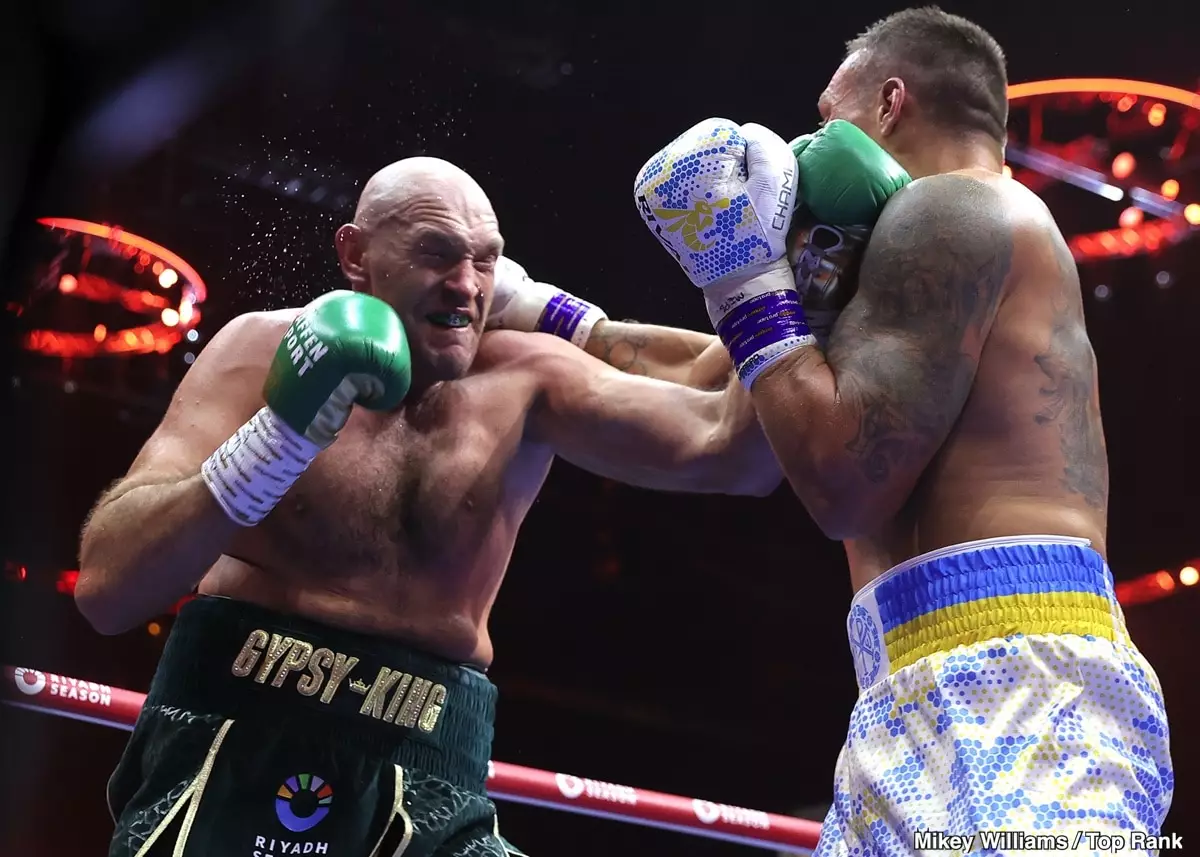As Tyson Fury prepares for his highly anticipated rematch against Oleksandr Usyk on December 21st, his candid admission about prioritizing financial gains has stirred both intrigue and skepticism among boxing fans and analysts. In an industry often driven by the thrill of competition and the quest for greatness, Fury’s perspective seems almost counterintuitive. He openly declares his goal as maximizing “dough” during the twilight years of his career, which raises questions about his motivations and readiness for the upcoming clash.
Psychological Defense Mechanism?
Many observers interpret Fury’s fixation on monetary rewards as an elaborate psychological shield against the potential fallout of an impending defeat. The 36-year-old heavyweight champion, with a record of 34 wins, 1 loss, and 1 draw, is acutely aware of his status as the underdog heading into the fight against Usyk. Such acknowledgment may seem like a strategic move to deflect pressure; by vocally prioritizing financial success, he can soften the blow of a likely loss. This tactic invites skepticism regarding his dedication to the sport. Is there a chance that Fury may be setting himself up for a premature exit from the ring rather than grandly riding off into the sunset as a celebrated champion?
Fury’s bravado is hardly new, especially when he boasts of his impressive fortune, claiming to have amassed around $200 million. While financial success is indeed a significant factor in modern boxing, it is essential to analyze how well these riches translate into performance within the ring. As Fury prepares for this high-stakes rematch, one must wonder: Can a fighter with such a pronounced financial focus still maintain the fire and determination necessary to win under the lights? The psychological implications of entering a fight primarily for financial reasons may result in a lack of focus or commitment, potentially jeopardizing his performance against a strong opponent like Usyk.
The Fine Line Between Business and Sport
In the realm of professional boxing, the balance between sport and business cannot be overstated. Tyson Fury’s statements reveal a profound understanding of this duality, where the financial aspects of fighting intertwine with the sportsmanship inherent to the game. He claims to compartmentalize these worlds—viewing fights primarily as business opportunities rather than personal challenges—allowing him to remain emotionally detached during competitions. However, this mindset raises a significant question: Is detachment the key to victory, or does it create a disconnect that can be exploited by more committed opponents?
Looking forward, Tyson Fury stands on a precarious precipice. While the rhetoric surrounding money has undeniably changed the landscape of boxing, it ultimately leads to speculation about his legacy. If Fury’s future fights are more about making a quick buck rather than securing his place in boxing history, one wonders how fans and critics will perceive him. As he heads into his rematch with Usyk, the world waits to see if Fury can emerge victorious or if he will become another fighter who prioritizes financial rewards over the artistry of the sport. Ultimately, the outcome will not only define his career but shape how boxing is viewed in an era that increasingly values profit over passion.

